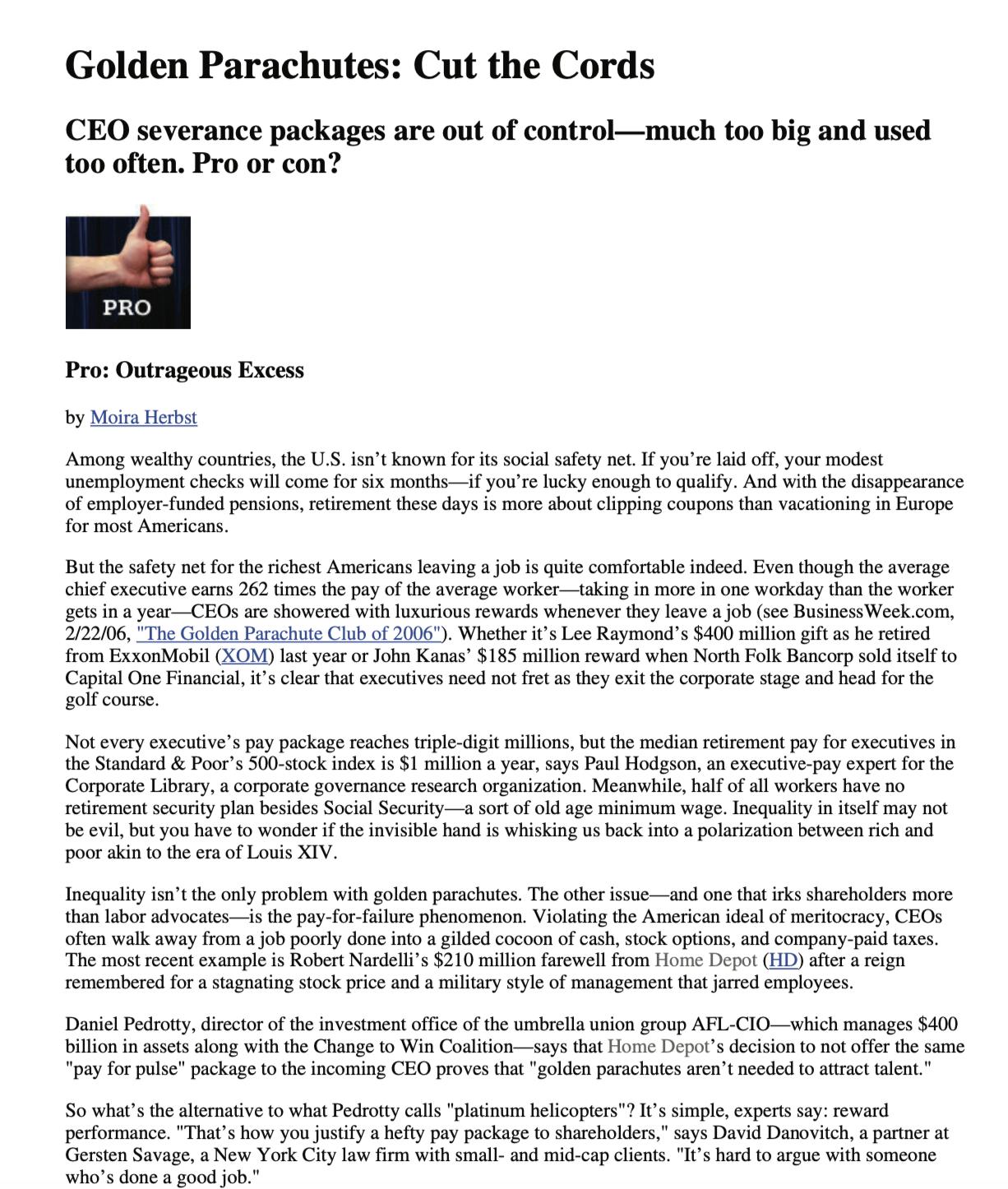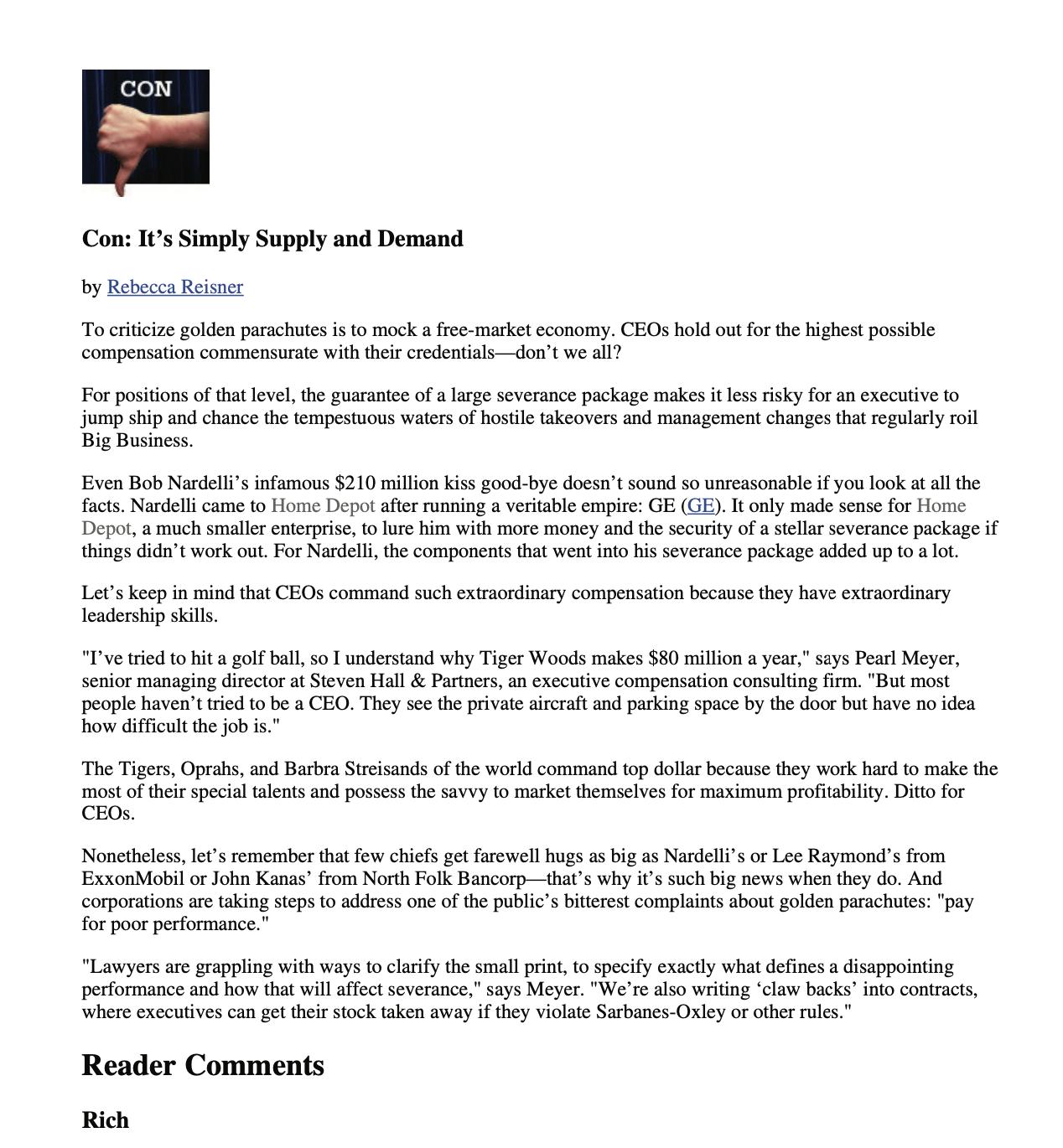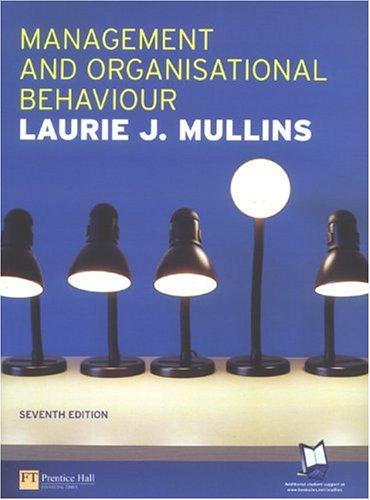Answered step by step
Verified Expert Solution
Question
1 Approved Answer
Read this article that discusses the 'golden parachutes' given to some CEOs. Are you for or against golden parachutes after reading the article? Do you
Read this article that discusses the 'golden parachutes' given to some CEOs. Are you for or against golden parachutes after reading the article? Do you think CEOs are worth what they are paid in general, beyond just the golden parachutes discussed?


Golden Parachutes: Cut the Cords CEO severance packages are out of control-much too big and used too often. Pro or con? PRO Pro: Outrageous Excess by Moira Herbst Among wealthy countries, the U.S. isn't known for its social safety net. If you're laid off, your modest unemployment checks will come for six months if you're lucky enough to qualify. And with the disappearance of employer-funded pensions, retirement these days is more about clipping coupons than vacationing in Europe for most Americans. But the safety net for the richest Americans leaving a job is quite comfortable indeed. Even though the average chief executive earns 262 times the pay of the average worker-taking in more in one workday than the worker gets in a year CEOs are showered with luxurious rewards whenever they leave a job (see Business Week.com, 2/22/06, "The Golden Parachute Club of 2006"). Whether it's Lee Raymond's $400 million gift as he retired from ExxonMobil (XOM) last year or John Kanas' $185 million reward when North Folk Bancorp sold itself to Capital One Financial, it's clear that executives need not fret as they exit the corporate stage and head for the golf course. Not every executive's pay package reaches triple-digit millions, but the median retirement pay for executives in the Standard & Poor's 500-stock index is $1 million a year, says Paul Hodgson, an executive-pay expert for the Corporate Library, a corporate governance research organization. Meanwhile, half of all workers have no retirement security plan besides Social Security-a sort of old age minimum wage. Inequality in itself may not be evil, but you have to wonder if the invisible hand is whisking us back into a polarization between rich and poor akin to the era of Louis XIV. Inequality isn't the only problem with golden parachutes. The other issue and one that irks shareholders more than labor advocates-is the pay-for-failure phenomenon. Violating the American ideal of meritocracy, CEOs often walk away from a job poorly done into a gilded cocoon of cash, stock options, and company-paid taxes. The most recent example is Robert Nardelli's $210 million farewell from Home Depot (HD) after a reign remembered for a stagnating stock price and a military style of management that jarred employees. Daniel Pedrotty, director of the investment office of the umbrella union group AFL-CIO-which manages $400 billion in assets along with the Change to Win Coalition-says that Home Depot's decision to not offer the same "pay for pulse" package to the incoming CEO proves that "golden parachutes aren't needed to attract talent." So what's the alternative to what Pedrotty calls "platinum helicopters"? It's simple, experts say: reward performance. "That's how you justify a hefty pay package to shareholders," says David Danovitch, a partner at Gersten Savage, a New York City law firm with small- and mid-cap clients. "It's hard to argue with someone who's done a good job."
Step by Step Solution
★★★★★
3.38 Rating (151 Votes )
There are 3 Steps involved in it
Step: 1
Based on the provided article it seems that the author of the pro viewpoint is against golden parachutes given to CEOs while the author of the con viewpoint is in favor of them The pro viewpoint argue...
Get Instant Access to Expert-Tailored Solutions
See step-by-step solutions with expert insights and AI powered tools for academic success
Step: 2

Step: 3

Ace Your Homework with AI
Get the answers you need in no time with our AI-driven, step-by-step assistance
Get Started


